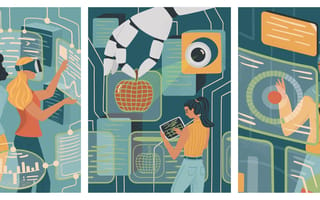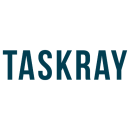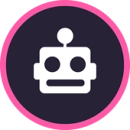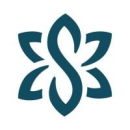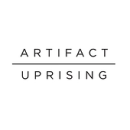What do the Tampa Bay Buccaneers, college mix tapes and Blackhawk helicopters have in common?
Believe it or not, professional football, mix tapes and the U.S. Army all became portals for women to find their place and passion in the tech industry. While women make up nearly half of the U.S. workforce, they are still underrepresented in STEM jobs: Only 27% of tech workers are women.
There are many reasons women find it difficult to break into the tech industry: Issues with pay equity, recruitment and networking make finding one’s way to a successful career in tech challenging. Often, women take circuitous routes to their STEM careers.
Built In Colorado sat down with eleven successful women in STEM to hear how their career journeys led them to a passion for tech. What we learned was fascinating.
These women started out as event planners, graphic designers and army pilots. Their childhood career aspirations included ice sculptor and cake decorator. But thanks to fortuitous invitations, generative curiosity and a willingness to explore possibilities, their paths each led them to tech.
TaskRay Senior Product Designer Mimi Zahedi summed up these winding journeys succinctly: “One of my favorite things about the tech industry is how many doors open up regardless of where you start.”
Featured Companies
Simpro Software Group provides business management software for the trades and services industry.
Briefly, tell us a bit about your career journey thus far and what you do at your company.
My career journey began in the hospitality industry following my completion of a Restaurant and Food Service Management degree at the University of Central Florida. In 2019, I joined the Tampa Bay Buccaneers sales team as an account executive.
While I may not have won a Super Bowl ring, the experience was invaluable. I learned a lot about myself, including that I had an affinity for sales and that I wanted to align myself with a company focused not only on sales but on delivering something that could leave a substantial impact.
This desire led me to Simpro, where I joined as a sales development representative. My role centered on helping trade businesses throughout North America see the benefits of streamlining their business operations with efficient software solutions.
Within nine months, I progressed into the role of sales development manager and now lead a team of business development representatives dedicated to raising awareness about our product and generating valuable business opportunities.
How did you originally discover your passion for technology? How did you know you wanted to pursue a career in tech?
My passion for technology blossomed unexpectedly through event planning in the restaurant industry. While working with spreadsheets and manual processes, a game-changing software transformed our proposal creation and client interactions, helping us win business easier and faster. This experience highlighted the importance of adapting to new processes and embracing technology's potential to help a business grow and succeed.
My passion for technology blossomed unexpectedly through event planning in the restaurant industry.”
Later, I found Simpro, a company revolutionizing trade businesses through technology. Recognizing their impact, I saw a chance to help companies improve their business efficiency, remain competitive and make better business decisions with the help of Simpro's software.
This journey from realizing technology's transformative power to actively facilitating its integration fueled my decision to pursue a tech-focused career. Now, armed with the understanding of technology's pivotal role, I'm dedicated to helping businesses harness its potential for success.
What advice would you give to other women discovering they have an interest in tech and are considering pursuing a career?
Take the leap. Embrace your curiosity and dive headfirst into the world of technology. Don't let self-doubt hold you back.
Mistakes are stepping stones, not setbacks. Learn from your mistakes and use them as invaluable learning opportunities.
Be proactive and do the work for the role you want before you have it. Invest your time and energy in honing the skills and knowledge that align with your goals. Take initiative, seek challenges and demonstrate your capabilities.
Find a great mentor and surround yourself with supportive peers that believe in your potential. Your journey will be defined by your determination, growth, and commitment to your own goals.
Tortuga AgTech builds agricultural robots.
Briefly, tell us a bit about your career journey thus far and what you do at your company.
In college, I completed a 1-year co-op on the hardware team at a computer manufacturing company. After this, I went back to school and started a summer internship designing electrohydraulic systems which added automation capabilities to construction equipment.
This experience changed my career path, as I realized the needs of the world sometimes call for ugly and dirty solutions. We were creating beautiful parts and sticking them in an excavator, something so practical and rugged.
A site visit at a farm started to tug on other threads in my life. I was developing a love of urban farms and sustainable food systems.
That is how I found Tortuga. I joined them as a field robotics engineer, and no two weeks have been the same. I spend my time troubleshooting hardware faults, testing, analyzing data and very closely watching robots pick.
My team was also testing new robots. As we sent them to farms, I often went to set them up and run trials, working closely with the farm teams. It is strenuous and fast-paced work, but seeing the robots in action is awe-inspiring, and the team at Tortuga makes it worthwhile. Tortuga has matured, and my role has shifted into technical operations and test engineering.
How did you originally discover your passion for technology? How did you know you wanted to pursue a career in tech?
In middle school, I didn’t like my career results because they were “boring.” I wasn’t sure what I wanted to do, but the tests told me I should crunch numbers, and I was not happy.
My dad had successful careers as a chef and an ice carver, and his stories about traveling the world set the bar high for me. At the time, I didn’t know how many unique jobs were in STEM or that my dad’s jobs used a lot of math.
In high school, I took science courses and started to see the appeal of engineering. My appreciation for technology began when a teacher started a Girls Who Code club. If not for Ms. Gilligan, I would not have considered what it meant to code and would not have had the confidence to try it. In an impulsive moment, I decided to major in computer engineering.
If not for Ms. Gilligan, I would not have considered what it meant to code nor had the confidence to try it.”
I was not passionate about technology initially, but I was amazed by it. I found a GWC chapter at my university and decided to pay it forward, instructing for three years.
A simple evolution led me to a passion. I checked the boxes of an engineer - organized, comprehensive, left-handed - and followed my natural tendencies. The boring label dissolved with time. I started to see how coding could lead to an exciting life.
What advice would you give to other women discovering they have an interest in tech and are considering pursuing a career?
Expect and anticipate constant change and accept feedback openly. Find a company that values feedback and allows people to grow into new roles.
The technology industry has a bad reputation for being highly competitive in the worst way, where it’s every person for themselves. This competitive nature, including the language people sometimes use around tech, creates barriers that are hard to overcome, especially for women who might not have the same exposure to the language or reputational freedom to be competitive.
I am lucky to have found Tortuga, where we work as a team competing for the same mission, not against each other. We also give feedback regularly and allow people to move into the roles they want. If you want to pursue a career in tech, search not for the job, but for the company that will provide the mentorship and career development that you need to reach the job you want.
TaskRay offers a Salesforce-native work management software solution designed to address post-sale processes such as onboarding, installations and implementations.
Briefly, tell us a bit about your career journey thus far and what you do at your company.
My journey kicked off as a UI/UX designer creating software for a diverse set of individually owned companies unified under one umbrella. This posed an exciting challenge to find common ground and design software that accommodated a vast array of needs.
My next chapter took me to a local startup, where I tackled contract work, predominantly for government-related projects. There was a lot of contrast in this experience as contract work can offer unique challenges, particularly with government work which tends to add red tape and additional constraints.
Today, I'm a senior product designer at TaskRay. This role involves all aspects of the design process for our Salesforce-native work management app.
From conceptualization to execution, I ensure user-centered and visually compelling solutions. I am so thankful to work closely with a lovely team of exceptional people who all care so much.
Reminiscent of my first job, TaskRay supports many companies whose users run the gamut across industries, job functions, challenges and processes. We are never bored working to drive innovation and craft seamless user experiences that align with our customers’ needs and overarching product vision.
How did you originally discover your passion for technology? How did you know you wanted to pursue a career in tech?
"What do you want to be when you grow up?" This question was the bane of my existence for years. None of the commonly discussed career options sounded appealing.
I knew there had to be more out there, but the options remained elusive. With an affinity for both math and science, as well as creativity and making things, my ideas ranged from cake decorator to supply chain manager — quite the disparity.
I started college in pursuit of supply chain management, but after two years, I felt zero enthusiasm for this path. I decided to take a pause to find a career that sparked passion.
About a year later, my brother introduced me to a friend in the tech industry. I was skeptical. Coding still seemed abstract, a realm of ones and zeros, and I wasn't aware of any other roles. With an invitation to shadow her at work, my perspective completely changed.
I learned about her role as a UI/UX designer and got a peek into what it could be like to design and build interactive prototypes to solve real-world problems. At that moment, I discovered my excitement for the tech industry. Software design was this magical combination of creativity, problem-solving and logic. I was ecstatic.
What advice would you give to other women discovering they have an interest in tech and are considering pursuing a career?
My best advice for the start of your journey is not to stress about making the perfect choice right away. Your career path will likely evolve, and that's okay. Embrace each experience as a chance to learn and grow, and continually reflect on what you enjoy and what doesn't resonate with you.
Use this self-awareness to evaluate potential companies and positions. Finding the right fit for you personally is crucial for your growth and satisfaction.
Remember, you're not just being interviewed by companies; you're interviewing them too. Don't mold yourself to fit what you think they want. Seek out a company that values what you bring to the table. Authenticity leads to a more fulfilling career.
The tech industry offers an incredible array of roles, but the responsibilities and titles can get blurry. Use this to your advantage. Forge a path that aligns with your passions and strengths.
One of my favorite things about the tech industry is how many doors open up regardless of where you start. You can start in one role and pivot to another, or craft your own role entirely, ultimately creating a career journey that's uniquely yours.
One of my favorite things about the tech industry is how many doors open up regardless of where you start.”

Sierra Space Corporation builds space systems and components in order to make space more accessible to more people.
Briefly, tell us a bit about your career journey thus far and what you do at your company.
My current role at Sierra Space is leading engineering for the company as senior vice president of engineering and test, and it brings together two personal passions of mine: engineering and space.
While I am just getting started in this position, I already know that leading this amazing team of engineers into the next generation of space commercialization and technology is a dream come true.
Sierra Space is a leading commercial space company that is building an end-to-end business and technology platform in space to benefit life on Earth. We are working on some incredible innovations including Dream Chaser®, the world’s first commercial spaceplane.
When I first started on my career journey, I did many college internships, spanning a few different industries from road construction and steel production to oil and gas and personal care products. I quickly learned about what I did and did not want to do when I graduated.
After college, I started as a mechanical engineer with Kimberly-Clark Corporation in Paris, TX, at the world’s largest diaper plant. I spent three years there learning about real implementation of design in a fast-paced environment, and it was an incredible place to start my career.
Next, I was offered an opportunity to join Boeing, working on fighter and bomber aircraft with a focus on stealth technology. I learned about the entire aircraft system, tip-to-tail, and really grew up in engineering there, spending several years with that area as my technical depth.
I discovered my passion for aviation and doing hard things that have challenged humanity throughout time. Over the 20 years I was at Boeing, I took on positions with increasing responsibility and eventually branched out from engineering into program management.
This was where I really grew to understand a holistic sense of the business, and my engineering background provided me with the foundation I needed to thrive. When I left Boeing in 2022, I was the vice president program manager for the F/A-18 & EA-18G programs, managing a team of about 2,000 people with an annual revenue of $2 billion.
Of note, I was the first female to lead a fighter aircraft program at Boeing. Upon departing the company, I knew I wanted to pursue a career in space and was offered the opportunity to join Sierra Space as a program manager.
How did you originally discover your passion for technology? How did you know you wanted to pursue a career in tech?
My mother tells a story of me going into toy stores as a kid and not heading for the dolls or games, but for the small wall of math books. I was also the annoying kid who was always taking things apart to see how they worked, typically not putting them back together.
My mother tells a story of me going into toy stores as a kid and not heading for the dolls or games, but for the wall of math books.”
I have always been a nerd, and I think that I always knew inherently that technology would be the career path I pursued. However, there was no one in my family in the tech world. In fact, no one in my family even had received a college degree at that time.
I played competitive soccer my whole life, and the perfect opportunity presented itself just two hours from home when I graduated high school to play soccer on scholarship at a small university primarily focused on science and engineering.
I honestly feel really lucky that the two passions I had in soccer and in math and science came together and created the perfect opportunity for me to thrive and realize a tech career. I graduated from the University of Missouri-Rolla with BS in Mechanical Engineering and an MS in Systems Engineering. My time there was surrounded by students pursuing engineering, which really made having an engineering career seem not only achievable, but also normal.
What advice would you give to other women discovering they have an interest in tech and are considering pursuing a career?
The best advice I can give is to be bold, courageous and gracious.
Be bold in your thinking. Women and men think differently. Be bold enough to recognize this and express your thoughts, especially when you’re the only woman in the room.
Be bold in your pursuits. Say yes to things even if you think you’re not 100 percent ready. You are ready and you will learn the things you don’t already know. Pursue the things you are passionate about and where you know you can make a difference.
Be bold enough to break the norms. You might not look like, sound like or even problem-solve like a stereotypical person in tech. That is what makes you stand out, so own it and leverage it.
It takes courage to be different, to think differently and to take paths less traveled. It takes grace to allow people time to see you and treat you in a different way. I’ve found this graciousness goes a lot further than assertiveness and pays dividends for fostering teams and relationships.
Sunday is a data-driven startup with a mission to empower consumers to take better care of their land.
Briefly, tell us a bit about your career journey thus far and what you do at your company.
I started working in the software field in 2016 and am now a senior front-end engineer. At Sunday, I work on features for the customer experience: enhancing the product purchase flow, customer account pages, and customer education.
How did you originally discover your passion for technology? How did you know you wanted to pursue a career in tech?
In my first career, I designed and developed museum exhibitions. I enjoyed the research, graphic design and gallery layout elements. After a while, I wanted to pursue a different type of building for different types of “visitors” and came across software development schools.
I was happy to learn I did not need yet another post-graduate degree to make a career change. At first, I thought that I could apply my design skills towards UI/UX design. I soon found that I really enjoyed the logic side of coding, and front-end engineering was a good way to combine both.
I was happy to learn I did not need yet another post-graduate degree to make a career change.”
I have been lucky that the teams I’ve been on allowed me to work closely with the designers and have input in what we are building.
What advice would you give to other women discovering they have an interest in tech and are considering pursuing a career?
Don’t let anyone stop you if this interests you. There are a lot of different types of jobs under the “technology” umbrella, so put some time into researching options and what type of schooling or other preparation you might need to work through.
A career “in tech” can mean writing code but it can also include product manager or quality assurance/tester. Find a niche where your skills and interests fit together.
Homebot gives homebuyers a platform to discover the financial insights and expert opinions that guide their real estate decisions.
Briefly, tell us a bit about your career journey thus far and what you do at your company.
The first chapter of my professional career was flying Blackhawk helicopters in the U.S army. For nearly a decade, I had the privilege of leading aviation teams through a multitude of different training and combat environments.
After my second tour in Afghanistan, I decided to leave the army and attend business school as a means of translating my military experience into the private sector. Since acquiring my MBA, I have worked in both publicly and privately-owned technology companies in both customer-facing and internal operations roles.
I currently serve as the Chief Customer Officer at Homebot, a quickly growing technology company in the real estate sector, where my team is responsible for all aspects of the customer experience post-sale. My role is to ensure our customers have a best-in-class experience with our product and services, while qualitatively and quantitatively infusing the customer's voice into the decision-making DNA of Homebot.
How did you originally discover your passion for technology? How did you know you wanted to pursue a career in tech?
I’ve alway been drawn to the intersection of science and human psychology, but I discovered my passion for technology in flight school. Before learning how to fly, aspiring helicopter pilots learn how the mechanics of their airframe allow them to defy gravity and stay airborne.
Since then, I’ve been fascinated by how advancements in technology can allow people to challenge the status quo and ultimately accomplish feats previously deemed to be impossible.
In business school, I had the opportunity to explore a variety of different roles across industries. I landed on pursuing a career in tech because I knew this industry would allow me to constantly learn, grow and solve problems that have a meaningful impact on the way humans live, work and play.
What advice would you give to other women discovering they have an interest in tech and are considering pursuing a career?
Careers in tech are jungle gyms rather than ladders, and it takes stepping into the arena to discover the best path for your skill sets and interests. This industry requires a growth mindset and a passion for innovation. You must be comfortable in ambiguity and know how to fail fast and learn as you go. Start somewhere and get after it.
Careers in tech are jungle gyms rather than ladders, and it takes stepping into the arena to discover the best path for your skill sets and interests.”
Grow your knowledge. To learn industry fundamentals, I took several courses on open source platforms like LinkedIn, Udemy and General Assembly.
While not everyone working in the tech industry needs to know how to code, I believe investing time in foundational coding classes can be extremely beneficial. Understanding programming core concepts has helped me problem solve and work more effectively with both technical and non-technical stakeholders.
Grow your network. It is important to talk to others who have walked the path before you. When reaching out to other professionals in the space, I always found it helpful to have a clear ask for what I was trying to uncover or learn from the conversation. Help others help you, and you will be surprised how much you both benefit from the connection.
SonderMind is creating a behavioral health marketplace that matches users up with therapists based on their insurance, unique needs and location, among other factors.
Briefly, tell us a bit about your career journey thus far and what you do at your company.
I studied computer science at UC Berkeley and was finishing my master’s degree in computer graphics when a friend approached me for help. He asked me to develop a graphic simulation program for his PhD project which was about automated highways where cars will drive themselves.
I did help my friend, and he kept coming back for more. Realizing that this was a big project, I proposed that his professor hire me to write an interactive graphic simulator for the project. This is how I got my first job.
Afterwards, I worked at several companies developing software to set up and maintain hardware and on-line expense reports. I did not enjoy it at all, and felt my work didn't really make a difference.
I left software development for a few years and learned documentary filmmaking. I produced a documentary about human rights violations in my birth country. It was one of the hardest challenges of my life, which made me realize that I was suited for software development.
I was so lucky to find a job in health tech. Currently, I work at Sondermind developing software to improve mental health access, utilization and outcomes. It has been the most satisfying job in my career.
How did you originally discover your passion for technology? How did you know you wanted to pursue a career in tech?
When I was a kid, I loved art and making things with my hands but my father pushed all his children to become engineers. The closest area I could find to satisfy my father was architecture.
I went to university to study architecture. But in that year a revolution happened in my country and having become a political activist, I eventually had to flee my country for fear of persecution.
When I arrived in the United States, I was totally confused about what I wanted to study until I took a class about algorithms and programming. I clicked with the subject in the first session.
When I arrived in the United States, I was confused about what I wanted to study until I took a class about programming. I clicked with the subject in the first session.”
I realized that writing programs is like art where you envision an outcome and then put together the pieces, like sewing a dress. It turned out that I was good at it, too. So I continued my education in computer sciences and got a master’s in computer graphics.
I started developing user interfaces at a time when there was no concept of UI design. My interest and skills in art helped me to play the role of UI designer for a while. Now that UI design has been given the importance it deserves, I leave it to the experts. I just do my software development and enjoy collaboration with UI designers.
What advice would you give to other women discovering they have an interest in tech and are considering pursuing a career?
My advice would be to try to introduce yourself as early as possible to a variety of areas. Especially now that on-line courses are available, take an introductory course in any area in which you have an inkling of interest.
Also, do not think that you need many years of education to get a good job. In my case I feel like I could have been successful without having gone through six years of college. I could have done it with a two-year community college degree.
Eventus provides strategy, consulting and leading-edge technologies to make the most of every customer touchpoint.
Briefly, tell us a bit about your career journey thus far and what you do at your company.
I have been working in the contact center industry and customer experience for 30-plus years. I started while I was in college and found growth and learning opportunities from the start.
The contact center environment presented a broad spectrum of opportunities for me to gain experience in operations, technology, account management, training, workforce management and human resources, as well as gaining experience working in a global and diverse environment.
Throughout my career, I’ve worked with a variety of clients and industries in both business process outsourcing and spent more than ten years leading a large global customer care organization for a financial services company.
Today, I lead our technology managed services practice at Eventus Solutions Group. Technology Managed Services is an experienced team of technical professionals that deliver support and optimization for our client’s CCaaS and CRM solutions. At Eventus, I work with an amazing team of technical experts helping our clients maximize their CX technology.
How did you originally discover your passion for technology? How did you know you wanted to pursue a career in tech?
A career in technology doesn’t always look like you might imagine. I truly never said, “I want to pursue a career in technology.” My passion throughout my career has revolved around helping clients and customers solve problems and realize success as it relates to customer experience. People, process, and technology have to work in concert to accomplish successful outcomes.
At Eventus, I get the opportunity to help clients align their business strategy with technical solutions that enable them to deliver on their overarching goals and objectives. I’m surrounded by customer experience, contact center and technology professionals working together to deliver outcomes and achieve success for our customers.
Whether a business is focused on delivering delightful experiences, improving operational efficiency, reducing overall cost, increasing automation or putting knowledge at their customer’s or employee’s fingertips, technology is central to a company’s ability to realize success. I enjoy the opportunity at Eventus to work with both business and technical teams, bridging gaps, creating solutions and supporting contact center technology.
What advice would you give to other women discovering they have an interest in tech and are considering pursuing a career?
Technology is a male dominated space. I often find myself the only woman in the room. Skilled and talented women have opportunities to stand out, move up and get exposure to all areas of tech. Be confident in what you bring to the table.
Skilled and talented women have opportunities to stand out, move up and get exposure to all areas of tech. Be confident in what you bring to the table.”
I encourage women to seek role models and mentors early in their career who they can build a trusting relationship with. Be open to feedback and ask for it.
You want honest and open feedback to learn and grow. Some of the best learning and growth in my career has come from my direct reports and peers. Make it comfortable for the people you trust to provide you with thoughtful and applicable feedback. Let them know you’re working on a particular development area and welcome their input and examples so you can improve.
Be open to continual learning and stay relevant. Seek new certifications. Sign up for classes. Ask questions of others. In a constantly changing profession, you must adjust and grow with it, so you aren’t obsolete.
Remember that diversity in the field of technology is critical to delivering creative and innovative outcomes. Women in technology have a unique perspective and significant contributions to be made.
Artifact Uprising creates premium quality, customizable photo goods for your digital photos.
Briefly, tell us a bit about your career journey thus far and what you do at your company.
My career started in the world of professional sports at a startup that designed apps for collegiate and pro teams. In that role, I shifted from marketing design into the product and engineering side of things fairly quickly.
With a graphic design degree in hand — UI/UX was just getting its groove back then — I discovered a passion for designing video and mobile experiences, even dabbling in customer insights measurement.
With that experience and my love for video, I found my way into the cable industry working on various TV platforms and designing app experiences for brands like Samsung, Apple TV, and Xbox. Eventually, I made my way into e-commerce where I had a deep dive on qualitative research from a wonderful design mentor.
Today, I've landed at Artifact Uprising. Immediately, I was enamored with the culture, the dedication to progress over perfection, and the challenging UX problems to solve.
As a Senior Product Designer, I'm on a mission to create meaningful user experiences while maintaining A|U’s aesthetic and attention to detail. I get to merge psychology, qualitative research and product design trends to create something unique yet user-friendly.
How did you originally discover your passion for technology? How did you know you wanted to pursue a career in tech?
My passion for technology finally clicked during one of my first real UI/UX projects. It was a mobile component to help sports fans understand scoring systems during MLS and USTA tournaments.
The research, the user interviews, and the infinite design choices I had to face got me hooked. To me, I had perfectly mixed psychology with human-computer interaction, resulting in an addiction to this career and everything that came with it.
My passion solidified when I realized I had a pattern; not with industry or design style, but the problems that attracted me. I loved the big, overarching UX problems that don’t exist everywhere — the sort of problems people have to make their own experience in, but are not easily found.
I had become a designer that didn’t fit perfectly anywhere, but had experience everywhere. A Jane of all trades.
What advice would you give to other women discovering they have an interest in tech and are considering pursuing a career?
We need your perspective. Although women are flooding the scene, tech is still a male-dominated industry. If tech or UX/UI is something you love, or its appeal is just starting to spark for you–chase it with everything you have.
If tech or UX/UI is something you love, or its appeal is just starting to spark for you — chase it with everything you have.”
You offer a unique view on work, process, and prioritization that I often see missing on all-male teams. Finally, surround yourself with as many women in tech as you can. No one knows what you’re going through more than they do, and you’ll need the community.
Frontsteps builds software to help streamline operations, improve communication, enhance security and foster resident engagement in residential communities.
Briefly, tell us a bit about your career journey thus far and what you do at your company.
I’m the VP of Product & Engineering at iHomefinder, a subsidiary of FRONTSTEPS, a comprehensive HOA / COA software solution, where we build technology that allows real estate agents and brokerages to grow their businesses by providing MLS property search for their websites and a real estate-specific CRM.
I’m responsible for the overall product vision, strategy and roadmap for iHomefinder, and get to lead product, engineering and QA teams through the development of features and products. I also work closely with our leadership team to make our company a great place to work.
I began my career as a web producer and later moved to the project management side of software development. It wasn’t until I discovered product management that I found the perfect fit.
I love the process of understanding our customers and their needs, then working with our talented teams to create something that serves a need or solves a problem. It’s so rewarding to me — I’m genuinely thrilled every time I see a wireframe become working software.
How did you originally discover your passion for technology? How did you know you wanted to pursue a career in tech?
I studied English in college, but after graduation I didn’t have a clear career path in mind. I decided to temp while I figured out my next move.
Someone connected me to a startup that provided digital prospectuses to mutual fund companies. I went in to interview for a proofreading position there, even though I wasn’t exactly excited by the idea of proofreading financial documents.
During that interview, they mentioned they had a major need for web producers and would provide HTML training to people who were interested. I immediately abandoned the proofreading team and volunteered to be a web producer.
The internet was young then and as a user, I was fascinated by all the opportunities it held. It sounds silly now, but at the time it all felt magical to me – email, reading websites instead of newspapers, even the hamster dance.
It sounds silly now, but at the time it all felt magical to me — email, reading websites instead of newspapers, even the hamster dance.”
But a tech career didn’t seem like an option for someone with a background in English Lit. That's why, when the opportunity presented itself, I grabbed it and started learning the following Monday. 25 years later, I’m still excited to be learning about technology and using it to make products that help make people’s lives better.
What advice would you give to other women discovering they have an interest in tech and are considering pursuing a career?
I’d first like to expand this to women who might not consider themselves primarily interested in technology, to remind them that these days, anything they’re interested in — anything at all — can involve technology.
A technical focus can allow you to work in any industry. I’ve worked in finance, publishing, and real estate, all while working in technology. A tech career can look like so many different things.
For those already considering a career in tech, I would encourage them at the start to worry less about finding the perfect job and more about finding opportunity. Your career is a journey, so you never want to feel stuck.
Focus on finding a position in a supportive environment where learning and growth are encouraged, because as you get a firsthand look at the varied and interesting roles that make up a team, you might gravitate toward a different position than the one you’re in. If you’re in the right environment, your manager will want to know what that is, and will do everything they can to help you build the skills you need to make the transition.
AdCellerant provides businesses access to high-quality digital marketing technology and solutions through partnerships with media companies and agencies.
Briefly, tell us a bit about your career journey thus far and what you do at your company.
I’m a people person who thrives on creating meaningful relationships and connections. Naturally, from a professional standpoint, I found myself in sales. Imagine that.
Over the years, my career journey has been a dynamic exploration of where traditional media and digital marketing intersect. Interestingly enough, my passion for digital marketing sparked while working in the newspaper industry.
After several years at the Colorado Press Association and The Denver Post, I extended my expertise to the broadcast industry, aiding local television, CBS Denver, and radio sellers, Audacy Denver, in curating successful digital campaigns for SMBs.
It’s still about connection.
Today, I am the Senior Director of Business Development at AdCellerant — a technology and digital marketing company. I am pleased to work with local media companies and support their digital revenue growth.
How did you originally discover your passion for technology? How did you know you wanted to pursue a career in tech?
Technology is a channel for connection. It is the nervous system of today’s modern society that enables us to act, react, and connect seamlessly.
If I’m being honest, my passion for leveraging technology as a pathway for connection came about when I was in college making mix tapes and burning CDs for family members and friends. It was personal, customized, and relevant and allowed me to share pieces of myself with an audience.
If I’m being honest, my passion for leveraging technology as a pathway for connection came about when I was in college making mix tapes and burning CDs for family members and friends.”
The same can be said about technology, specifically MarTech. It should deliver on all these elements to create a qualified alignment between a service/provider and the end user/customer, opening a window of opportunity.
My passion for technology has deepened over the last fifteen years. It was a slow burn that started with a personal passion. I didn’t know precisely how it would significantly affect my career path. I just knew I wanted to help facilitate meaningful connections.
What advice would you give to other women discovering they have an interest in tech and are considering pursuing a career?
Remember your personal passions. What do you enjoy doing? What makes you happy and fulfilled? There is almost always a pathway to technology from a point of passion.
Always be curious. Ask questions. Read new content. We use technology daily in almost every facet of our lives; challenge your beliefs on what technology should and should not do. Remember to push the envelope while listening to your favorite music.

